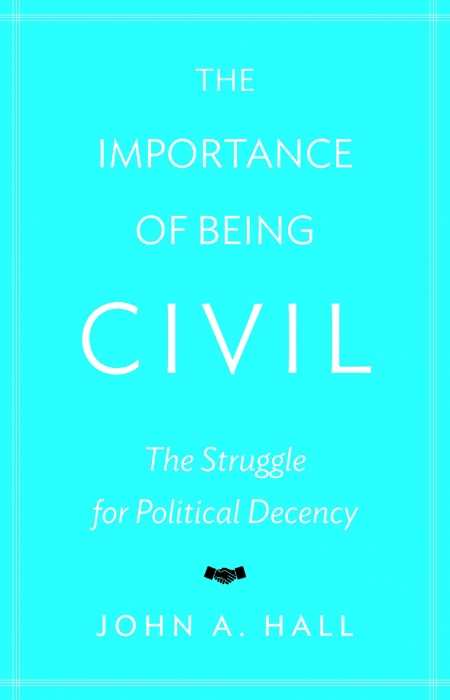The Importance of Being Civil
The Struggle for Political Decency
This meandering tour through centuries of Western history finds that political civility is a fragile creature.
“Commerce is a cure for the most destructive prejudices,” Montesquieu wrote in 1748. “Wherever we find agreeable manners,” he observed, “there commerce flourishes; and … wherever there is commerce, there we meet with agreeable manners.” The glimmer of profit keeps men from behaving badly: this notion has attracted comment from a long line of writers, Samuel Johnson and John Maynard Keynes among them.
As with the stock market, past success is no guarantee of future performance. When Johnson remarked that “there are few ways in which a man can be more innocently employed than in getting money,” he could not have anticipated the doings of Leopold II. Admired as the “builder king” in Belgium for funding the construction of fine structures in Brussels and Ostend, Leopold made money by forcing people of the Congo to tap wild rubber vines. The agents of his company punished those who resisted, or collected too little rubber, by killing them or cutting off their hands. William Henry Sheppard, a missionary who investigated an incident in 1899, reports being led to “a shed covered with a framework of sticks, under which a slow fire was burning, and there they were—the right hands of the victims of the slaughter. I counted them, eighty-one in all.”
In The Importance of Being Civil, John Hall, professor of sociology at McGill University, agrees with the idea that “competitive consumption is a support to civility.” As he inspects the historical record in Europe and in the United States, he finds, however, that political civility, the “civilized acceptance of difference,” is a fragile creature. In Europe, it was crushed when the First World War broke out and in America, half a century earlier, during the Civil War. In decades since, the horrors of trench warfare and memories of bombing raids have remained fresh enough in European minds to “create the discipline” needed to revive civility, and America has been even more hospitable to immigrants than countries across the Atlantic.
The Importance of Being Civil is a meandering tour through centuries of Western history in the company of Hall, a guide who has led such excursions for decades. As a narrative well-stocked with quotes from carefully chosen thinkers—Machiavelli, Adam Smith, and de Tocqueville—and analytic observations that Hall has polished to brilliance through repeated delivery, the book will please both political scientists and casual readers with an interest in the tribulations, triumphs, and prospects of civility.
Reviewed by
Karunesh Tuli
Disclosure: This article is not an endorsement, but a review. The publisher of this book provided free copies of the book to have their book reviewed by a professional reviewer. No fee was paid by the publisher for this review. Foreword Reviews only recommends books that we love. Foreword Magazine, Inc. is disclosing this in accordance with the Federal Trade Commission’s 16 CFR, Part 255.

